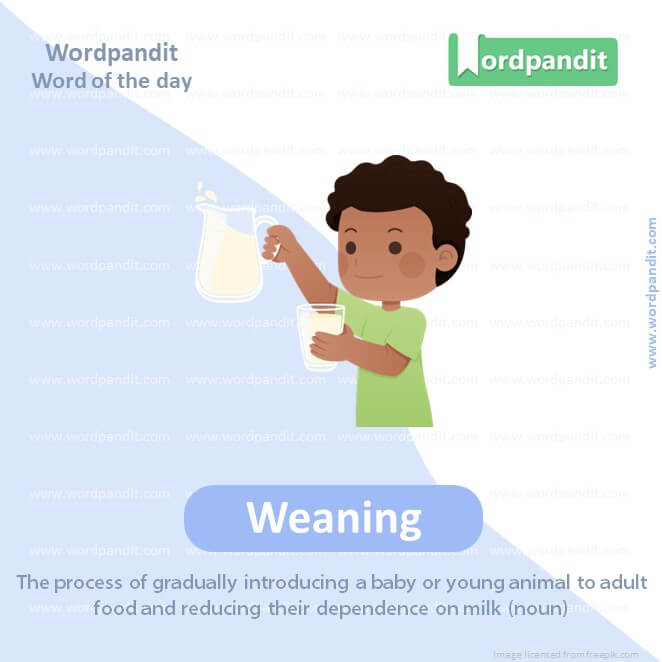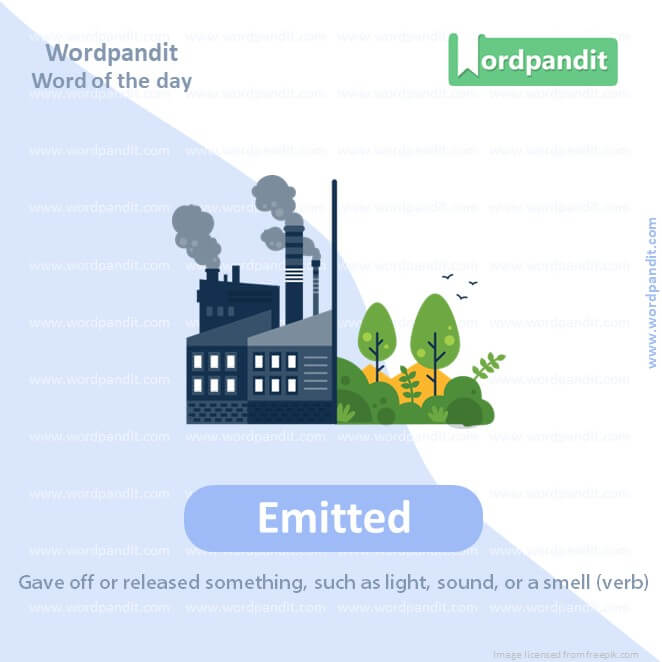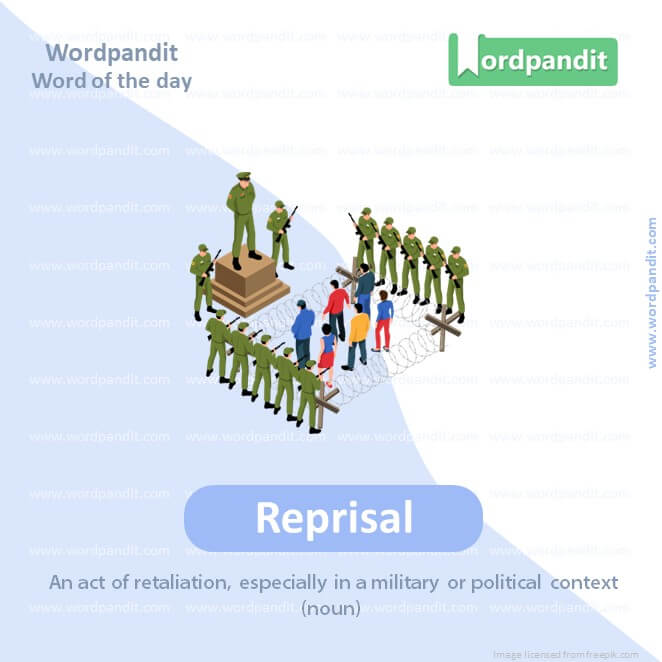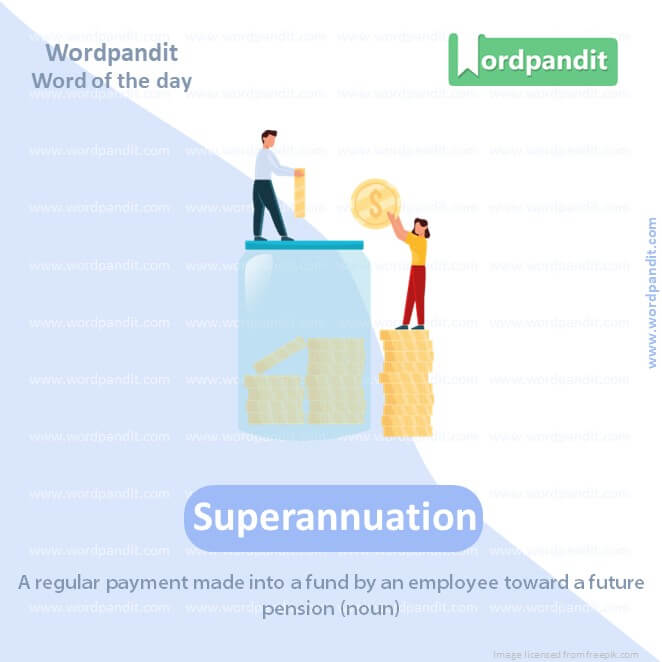Daily Vocabulary Words: List of Daily Used Words
Hi there. Welcome to this special section @ Wordpandit.
Our endeavour here is straightforward: highlighting important daily vocabulary words, you would encounter in The Hindu. This is your repository of commonly used words; essentially, we are posting a list of daily used words. Hence, this has significant practical application as it teaches you words that are commonly used in a leading publication such as The Hindu.
Visit the website daily to learn words from The Hindu.

WORD-1: Weaning
CONTEXT: all members of the United Nations climate framework, to act on weaning their economies off fossil fuels.
Explanatory Paragraph: Weaning is when a baby starts eating regular food instead of just drinking milk. It’s like moving from only having baby food to trying things like apples and carrots.
Meaning: The process of gradually introducing a baby or young animal to adult food and reducing their dependence on milk (noun).
Pronunciation: wee-ning
Synonyms: Transitioning, Graduating, Accustoming, Shifting, Introducing, Adapting
Usage Examples:
1. The baby started weaning at six months old.
2. Weaning from breastfeeding can be a gradual process.
3. The mother discussed weaning strategies with the pediatrician.
4. They began weaning the puppies onto solid food.

WORD-2: Emitted
CONTEXT: Countries that rapidly industrialised in the 20th century have disproportionately emitted more carbon than their ‘fair share’ given the population sustained.
Explanatory Paragraph: Emitted means something is sent out or given off, like when a flower gives off a smell or a light bulb gives off light.
Meaning: Gave off or released something, such as light, sound, or a smell (verb).
Pronunciation: e-mit-ted
Synonyms: Released, Discharged, Radiated, Exuded, Expelled, Exhaled
Usage Examples:
1. The machine emitted a loud noise.
2. The flower emitted a sweet fragrance.
3. The lamp emitted a bright light.
4. The factory emitted harmful gases.

WORD-3: Reprisal
CONTEXT: the spirit of de-globalisation, and the fear of political reprisal that heads of governments face within their constituencies.
Explanatory Paragraph: Reprisal is when someone does something back to someone else because they were hurt or harmed first. It’s like getting even for something that was done to you.
Meaning: An act of retaliation, especially in a military or political context (noun).
Pronunciation: re-pris-al
Synonyms: Retaliation, Revenge, Payback, Vengeance, Retribution, Counterattack
Usage Examples:
1. They feared reprisals for their actions.
2. The attack was a reprisal for the earlier assault.
3. He faced reprisals after speaking out.
4. The government warned against any reprisals.

WORD-4: Conducive
CONTEXT: The current system of recruitment of district judges through the respective High Courts and other subordinate judicial officers through public service commissions is more conducive to ensuring diversity.
Explanatory Paragraph: Conducive means helping or making something happen easier. It’s like when your room is quiet and neat, it’s easier to do your homework.
Meaning: Making a certain situation or outcome likely or possible (adjective).
Pronunciation: con-du-cive
Synonyms: Favorable, Beneficial, Helpful, Supportive, Contributory, Advantageous
Usage Examples:
1. A quiet environment is conducive to studying.
2. The warm weather is conducive to growing plants.
3. They created a conducive atmosphere for learning.
4. The policy was not conducive to economic growth.

WORD-5: Superannuation
CONTEXT: It may appear that a national service for judges not inferior to the post of district judges, with a superannuation age of 60, will be an attractive proposition for young lawyers to apply for it.
Explanatory Paragraph: Superannuation is like a big piggy bank where money is saved for a very long time, usually for when people are old and stop working.
Meaning: A regular payment made into a fund by an employee toward a future pension (noun).
Pronunciation: su-per-an-nu-a-tion
Synonyms: Pension, Retirement fund, Savings, Nest egg, Provident fund, Retirement plan
Usage Examples:
1. He contributed to his superannuation fund for 30 years.
2. Her superannuation will support her in retirement.
3. Companies often offer superannuation benefits.
4. They reviewed their superannuation plan annually.
WORD-6: Astonishment
CONTEXT: By September, scientists were expressing astonishment at how much land and ocean temperatures increases.
SOURCE: The Hindu
EXPLANATORY PARAGRAPH: Astonishment is when you’re really surprised or amazed by something. It’s like seeing a magic trick that makes you go “Wow!”
MEANING: Great surprise or amazement (noun).
PRONUNCIATION: as-ton-ish-ment
SYNONYMS: Amazement, Surprise, Wonder, Awe, Stupefaction, Bewilderment
USAGE EXAMPLES:
1. She looked at him in astonishment.
2. His talent left the audience in astonishment.
3. They expressed astonishment at the unexpected news.
4. To her astonishment, she won the first prize.
WORD-7: Ratcheting
CONTEXT: the GST is meant to drive the ratcheting up of country pledges.
SOURCE: The Hindu
EXPLANATORY PARAGRAPH: Ratcheting means making something tighter or more intense step by step. It’s like turning a knob slowly to make the music louder and louder.
MEANING: Increasing or intensifying something in stages (verb).
PRONUNCIATION: ratch-et-ing
SYNONYMS: Escalating, Increasing, Tightening, Amplifying, Intensifying, Stepping up
USAGE EXAMPLES:
1. Tensions were ratcheting up in the region.
2. The company was ratcheting up its marketing efforts.
3. He felt the pressure ratcheting up as the deadline approached.
4. They were ratcheting down their expenses.
WORD-8: Benchmarking
CONTEXT: Benchmarking a country against a temperature outcome requires prior agreement on what each country can fairly be asked to do to limit emissions.
SOURCE: The Hindu
EXPLANATORY PARAGRAPH: Benchmarking is like measuring something against the best to see how good it is. It’s like trying to jump as far as the longest jump you’ve seen.
MEANING: Comparing a business’s processes and performance metrics to industry bests or best practices (noun).
PRONUNCIATION: bench-mark-ing
SYNONYMS: Gauging, Comparing, Measuring, Evaluating, Assessing, Standardizing
USAGE EXAMPLES:
1. The company used benchmarking to improve its processes.
2. Benchmarking against leading competitors was essential.
3. They conducted a benchmarking study.
4. Benchmarking helped them identify areas for improvement.
WORD-9: Contentious
CONTEXT: Particularly contentious is a call for a time-bound phase down of fossil fuels, but here the exact phrasing will matter.
SOURCE: The Hindu
EXPLANATORY PARAGRAPH: Contentious means something that causes a lot of arguments or disagreements. It’s like a topic that makes people start arguing when it’s mentioned.
MEANING: Causing or likely to cause an argument; controversial (adjective).
PRONUNCIATION: con-ten-tious
SYNONYMS: Debatable, Disputable, Controversial, Arguable, Disagreeable, Polarizing
USAGE EXAMPLES:
1. The issue was highly contentious among the group.
2. They entered into a contentious debate.
3. The policy was contentious and led to protests.
4. He was known for his contentious nature.
WORD-10: Interim
CONTEXT: Perhaps most contentious, the World Bank was agreed as an interim host of the fund, but under strict governance guidelines to provide a greater say for recipient countries.
SOURCE: The Hindu
EXPLANATORY PARAGRAPH: Interim means for a short, temporary time. It’s like when a teacher is away, and a substitute teacher comes for a little while.
MEANING: A temporary or provisional arrangement, particularly in time or position (noun, adjective).
PRONUNCIATION: in-ter-im
SYNONYMS: Temporary, Provisional, Interim, Transitory, Short-term, Acting
USAGE EXAMPLES:
1. She was appointed as the interim manager.
2. During the interim, they found a temporary solution.
3. The interim period was used to reassess the strategy.
4. They published an interim report on the project.
vocabulary 10 sentence
In the fascinating world of language learning, one of the most vital and effective methods is the ‘vocabulary 10 sentence’ strategy. An incredibly valuable tool, the ‘vocabulary 10 sentence’ approach assists language learners in an immersive, organic, and contextual manner often used in learning environments.
The ‘vocabulary 10 sentence’ strategy is essentially a practice where learners incorporate a new vocabulary word into 10 different sentences. Doing this repeatedly creates a thorough understanding of the word’s meanings, usage, context, and nuances. It is a learning technique that imitates the natural language acquisition process.
In a ‘vocabulary 10 sentence’ exercise, learners begin with choosing a new word, then crafting ten unique sentences involving that word. While this can seem challenging initially, it rapidly enhances one’s cache of usable vocabulary. Moreover, it allows learners to grasp a different range of contexts and applications for every new word, encouraging them to experiment with their language skills.
In traditional vocabulary learning methods, words are often learned as standalone entities with rigid definitions. In contrast, the ‘vocabulary 10 sentence’ technique encourages an understanding that words are dynamic and can have different meanings based on the context they are used in. This technique helps remove the constraints of rote memorization and promotes active learning instead.
The ‘vocabulary 10 sentence’ technique can be utilized by language learners at all stages. Setting a daily target for learning new words through this method can significantly speed up language acquisition and understanding.
In conclusion, the ‘vocabulary 10 sentence’ strategy can revolutionize the way you learn new languages. This ingenious approach motivates learners to explore beyond a word’s basic definition, diving into its usage in various contexts. By incorporating the ‘vocabulary 10 sentence’ technique into your daily language learning routine, you will actively participate in your own learning process, making it more effective and enjoyable.











